
Strengthening T&CM knowledge amongst health professionals
Traditional & Complementary Medicine
(T&CM) Unit of Institut Kanser Negara (National Cancer Institute; NCI), in
collaboration with UTAR, conducted
Herbal Pharmacy Workshop Series II from 7 October 2019 to 9 October 2019.
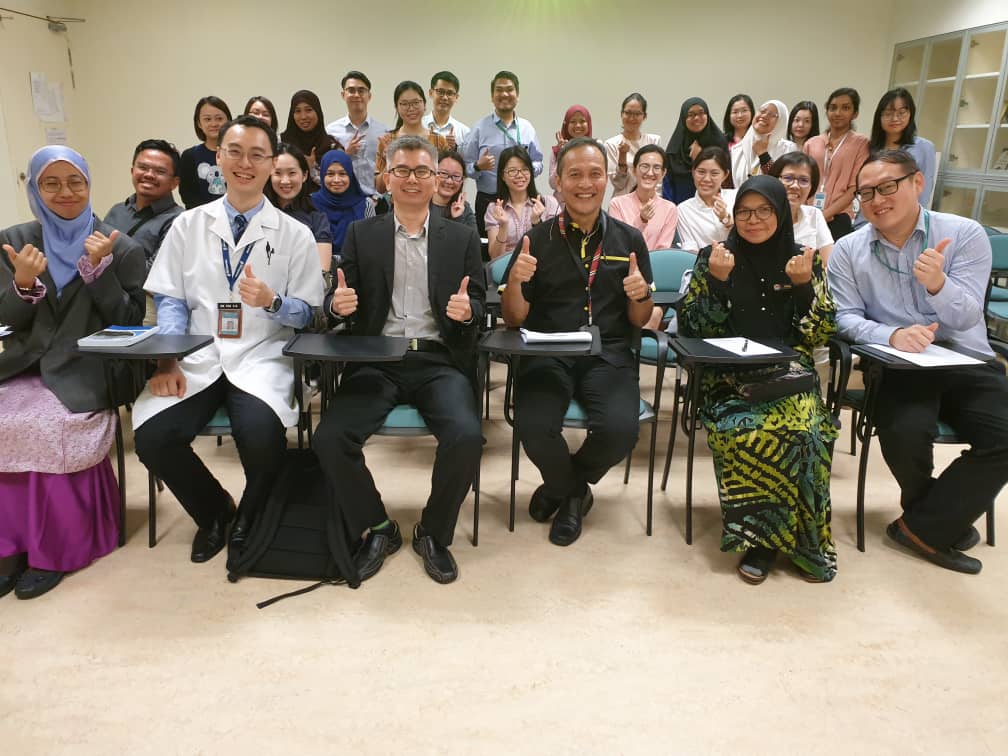
Front row,
second from left: Dr Teo, Dr Te and Dr Mohd Anis with participants
The workshop was inaugurated at NCI and
was officiated by Director of NCI, Dr Mohd Anis bin Haron@Harun. Dr Teo
Chiah Shean, the Head of T&CM Unit NCI and also the chairperson of this
workshop said that this workshop aimed to impart the knowledge of
traditional Chinese medicine (TCM) to health professionals, giving them a
deeper understanding of Chinese Herbal Medicine that could help them better
serve their patients.
The workshop saw the participation of pharmacists from various institutes under Ministry of Health Malaysia, including T&CM Division; National Pharmaceutical Regulatory Agency (NPRA); T&CM branch offices from Pulau Pinang, Johor, Terengganu, Perak, Sarawak and Sabah; and MOH hospitals with T&CM Unit which provide herbal therapy as adjunct treatment for cancer, such as Hospital Kepala Batas Pulau Pinang; Hospital Sultan Ismail Johor; Hospital Wanita & Kanak-kanak Sabah and NCI.
The three-day workshop featured both theoretical and practical sessions, delivered by UTAR Centre for Research in Traditional Chinese Medicine (CRTCM) Chairperson-cum-Department of Chinese Medicine Head Assoc Prof Dr Te Kian Keong, Clinical TCM Programme Head Judick Yap Wei Hoong, and Department of Chinese Medicine lecturer Go Pei Heng. The first two days of the workshop was conducted at NCI, while the last day was held at Acupuncture and Tuina Training Centre (ATTC) of UTAR Sungai Long Campus.
.jpeg)
.jpeg)
From left: Dr
Te and Go giving their talks at NCI
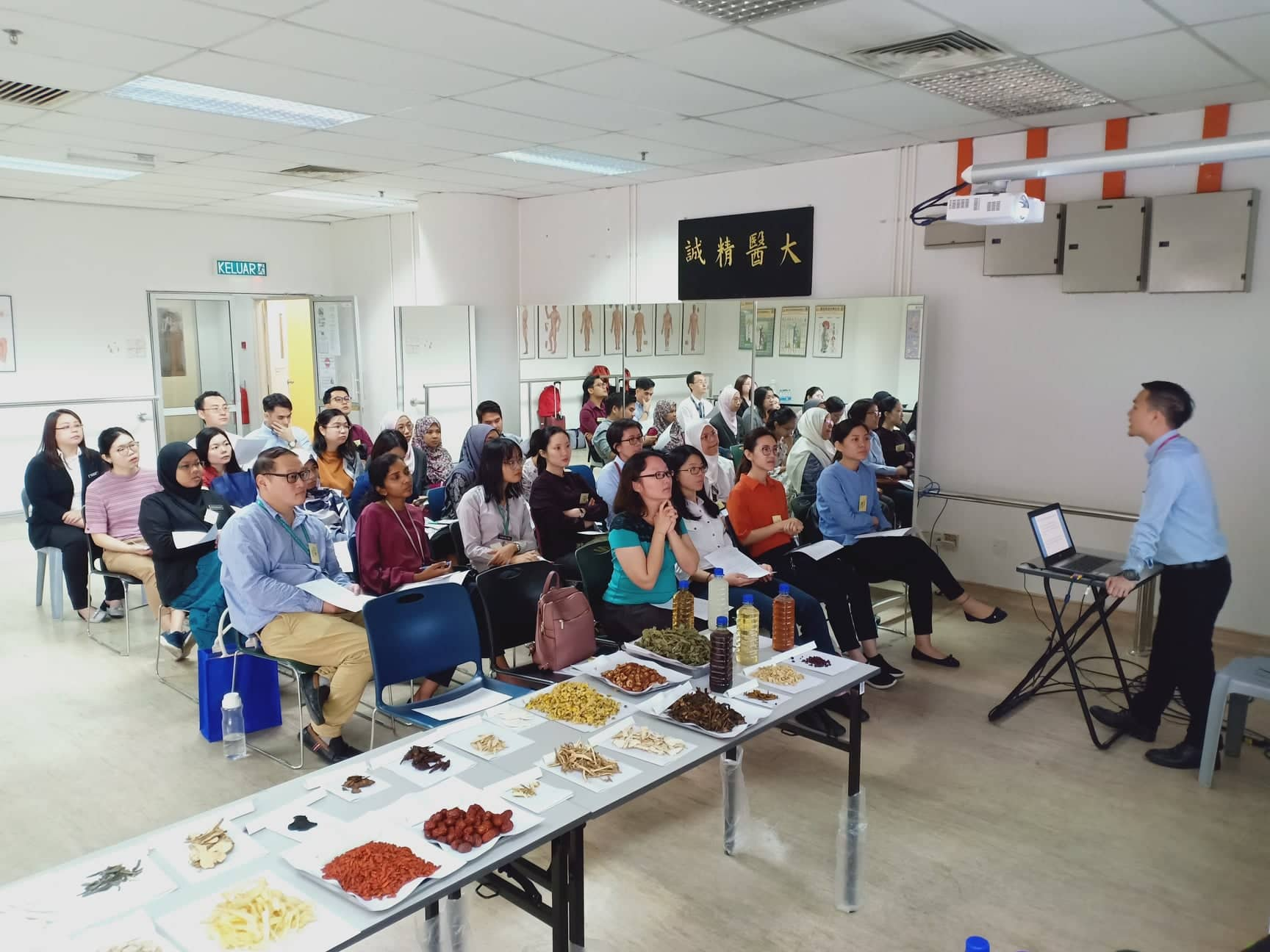
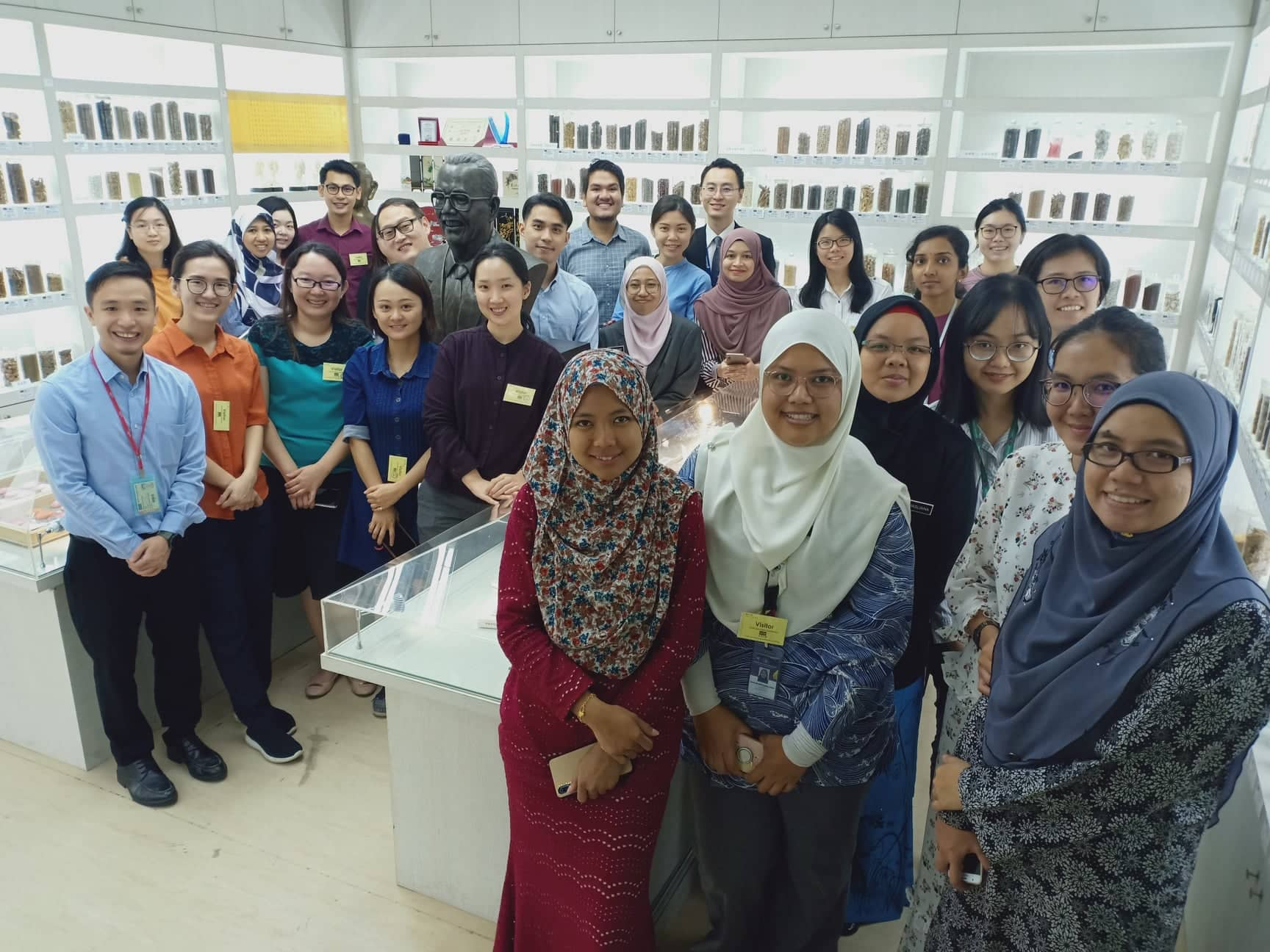
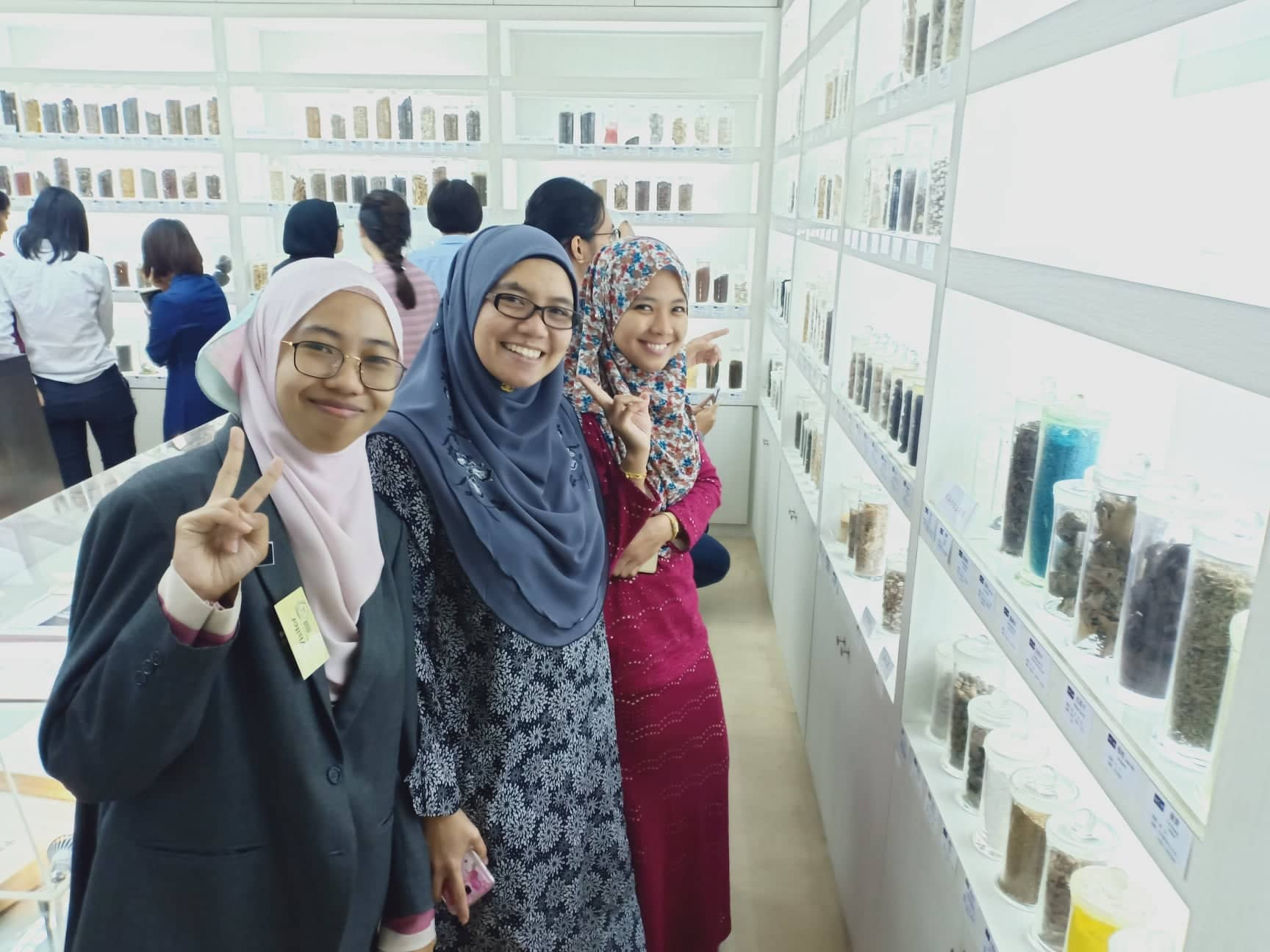
.jpg)
.jpg)
The
participants during the lab tour
During the workshop, the participants
were given a chance to prepare herbal decoction which involved formulating
decoction, soaking and boiling herbs, and learning how to store the plant
medicines in an interactive and hands-on-herbal way. In order to further
enhance their understanding on Chinese Herbal Medicine, they were given a
chance to taste a variety of herbs, experience TCM manipulative therapies
such as Tui-Na, acupuncture and fire cupping, and visited UTAR TCM centre,
laboratories, and library. They were also given an assessment to determine
their learning outcome and to evaluate the effectiveness of the programme.
.jpg)
.jpg)
Participants
tasting various herbs
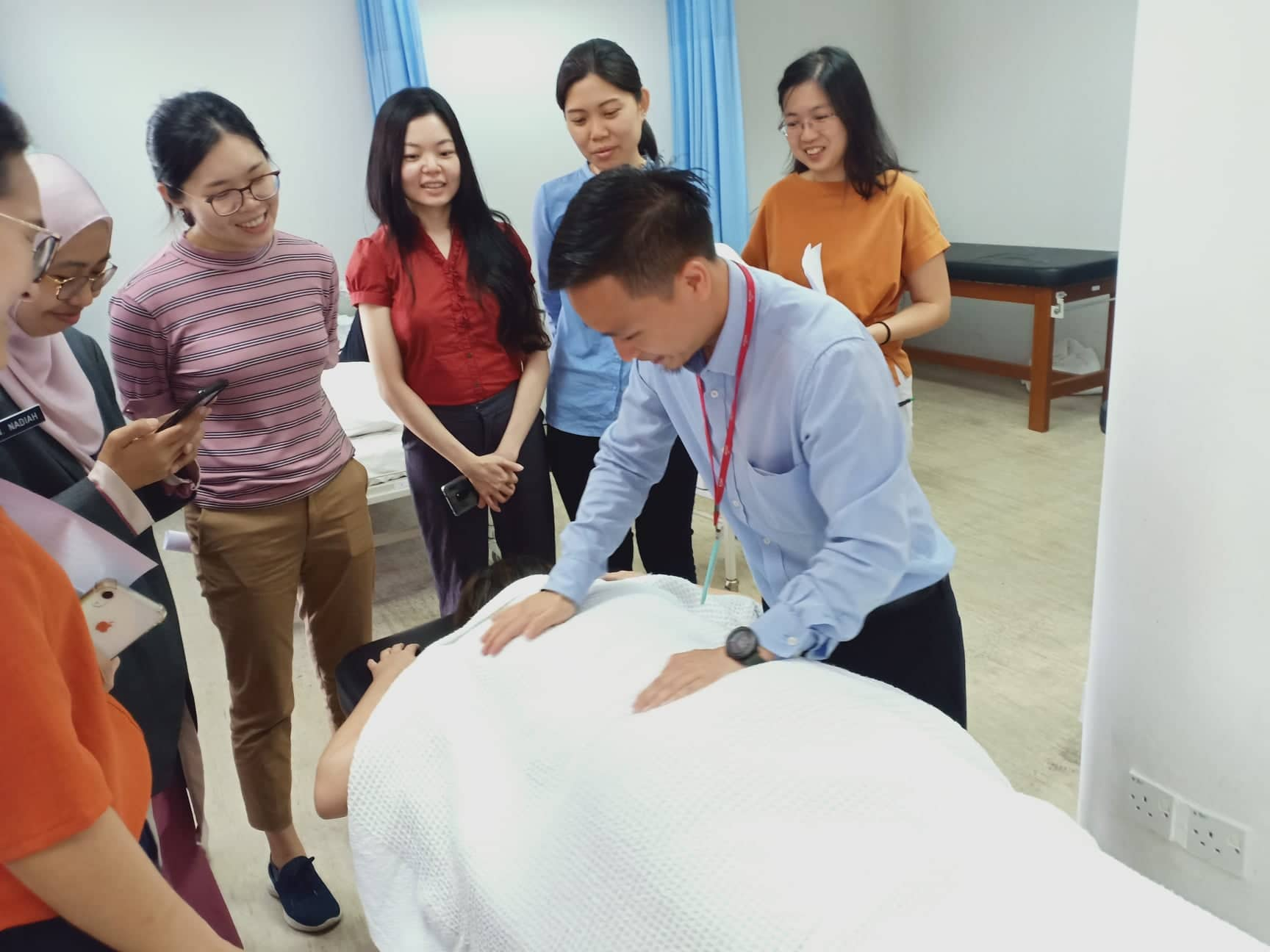
Judick Yap
demonstrating Tui-Na
.jpg)
.jpg)
Participants
trying their hands on preparing herbal decoction
.jpg)
.jpg)
The workshop
included activities such as herbs boiling (left) and storing
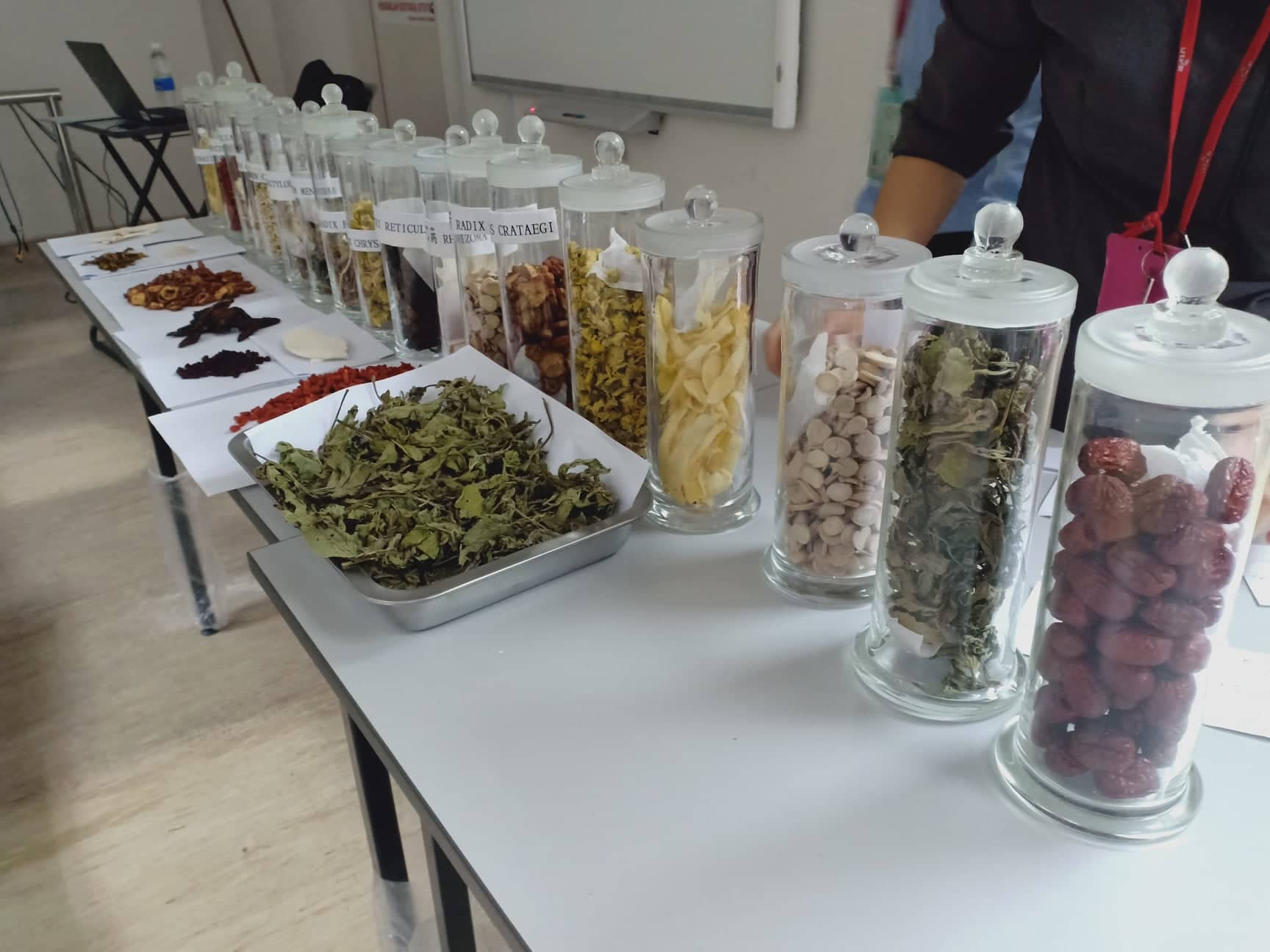
Herbs were
stored in glass jars for exhibition
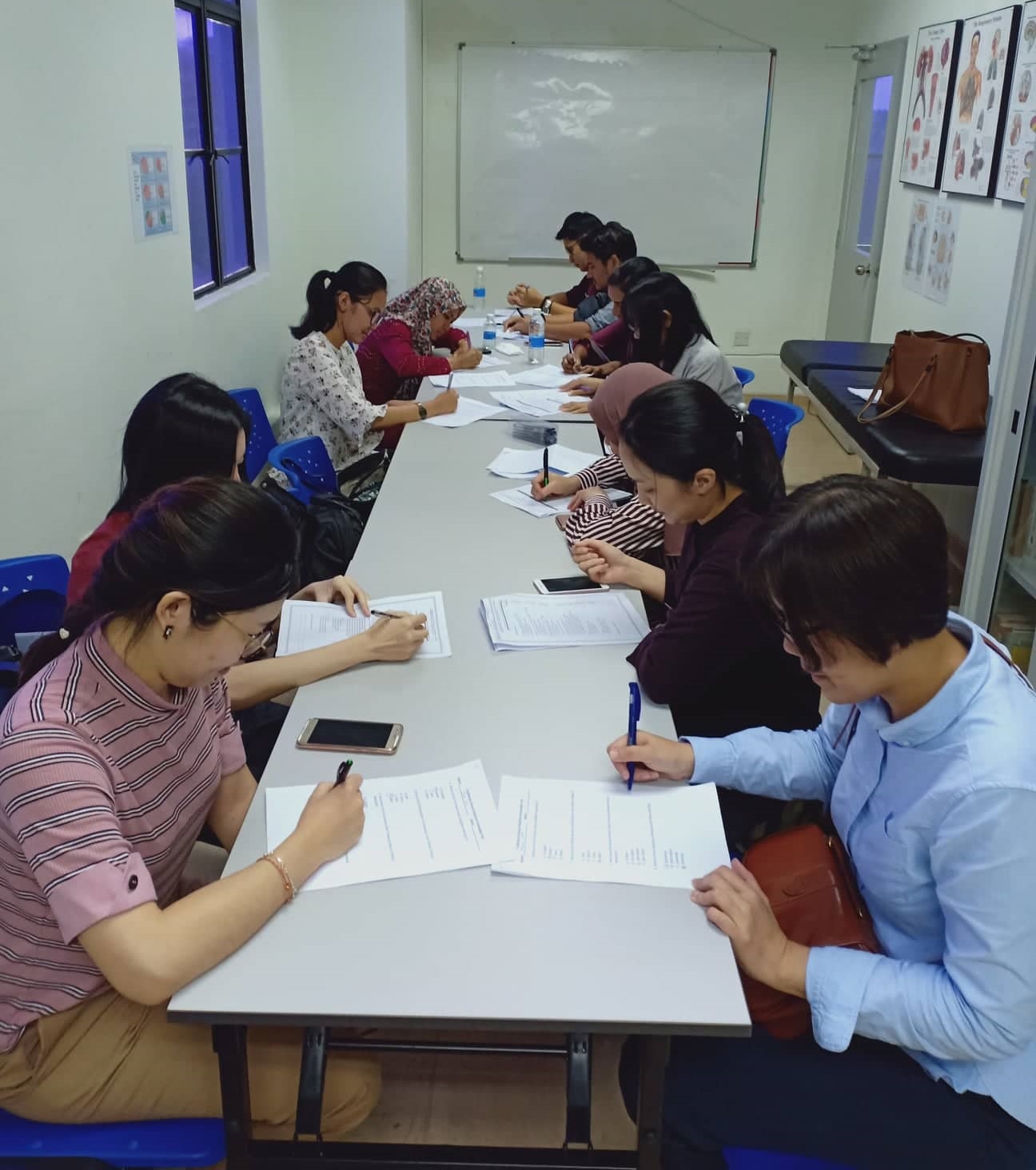
Participants
during the assessment
One of the participants Neo Suk Xian,
from Hospital Sultan Ismail Johor, commented that the workshop provided her
with good experience to learn about TCM. According to her, patients will
usually inquire about the use of herbal medicines and the pharmacists should
be aware of the types of herbal medicines that the patients are consuming to
avoid drug-herb interactions. “We not only need to know more about Chinese
medicine, but also any traditional Chinese medicine that could be found
locally,” she said. She added, “Some spices that Indians usually consume
could also cause food-drug interaction.”
On the other hand, Nur Atiqah binti
Kamalrodin from NPRA Centre for Investigational Product said that the
workshop provided good exposure for her to widen her knowledge on herbs and
their nature, as well as Chinese medical practices such as acupuncture and
cupping therapy. She explained that her job was related to the evaluations
of various herbal medicines, and she said, “The value of herbs should be
appreciated more. More research studies need to be done to prove their
health benefits.”
Commenting on the programme, Lee Leong
Shean from NCI said that the programme was well-arranged and the contents of
the course were easy to understand for beginners like him. He was amazed by
the collection of preserved plant specimens during the tour in UTAR Herbal
Showroom. He also hoped to have more opportunities to learn more about
herbal medicine and its applications.
The programme ended on a high note with a
group photo session and certificate presentation from Dr Teo Chiah Shean to
the participants.
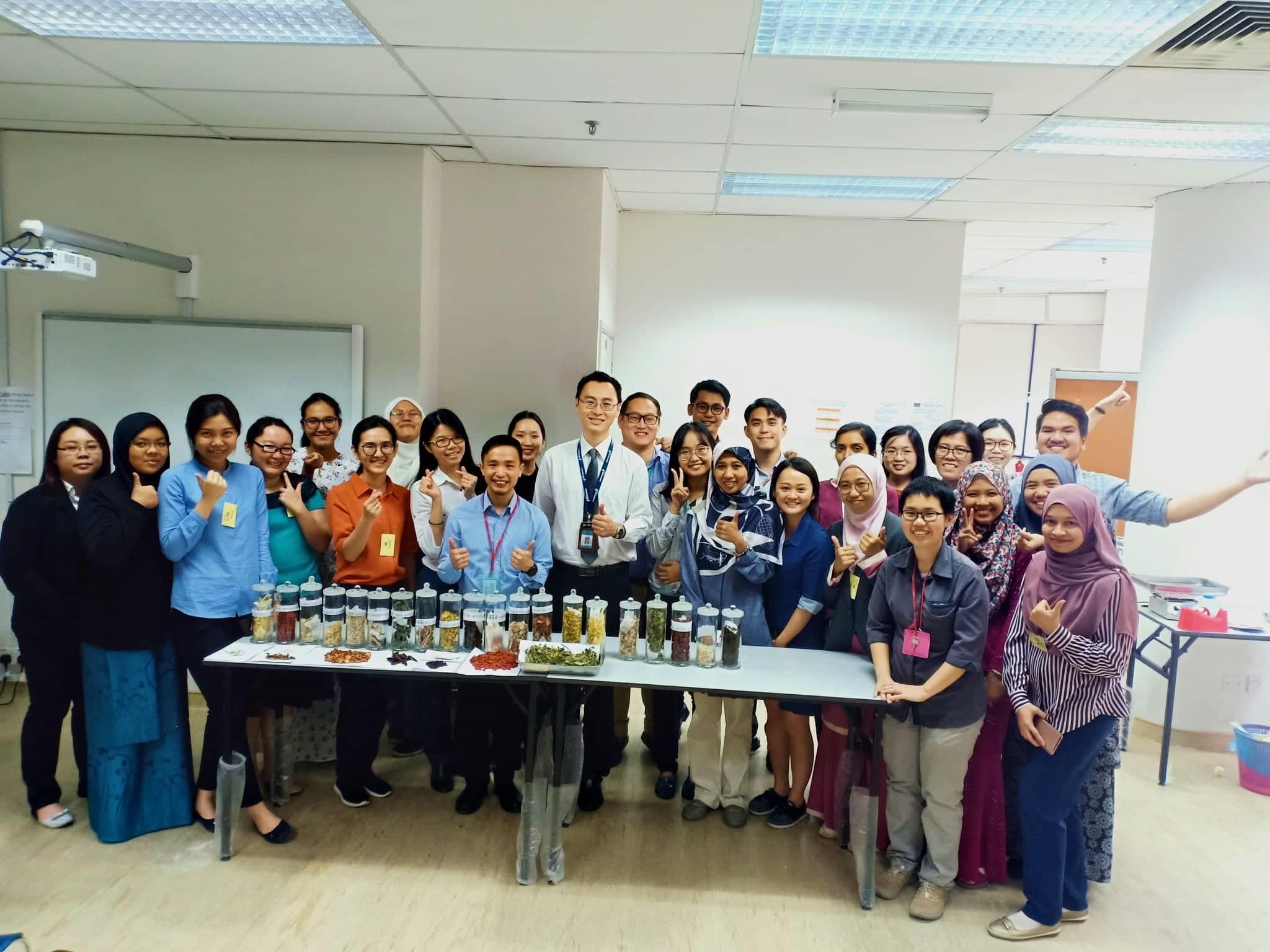
Dr Teo (centre) with
participants
© 2019 UNIVERSITI TUNKU ABDUL RAHMAN all>DU012(A).
Wholly owned by UTAR Education Foundation Co. No. 578227-M LEGAL STATEMENT TERM OF USAGE PRIVACY NOTICE